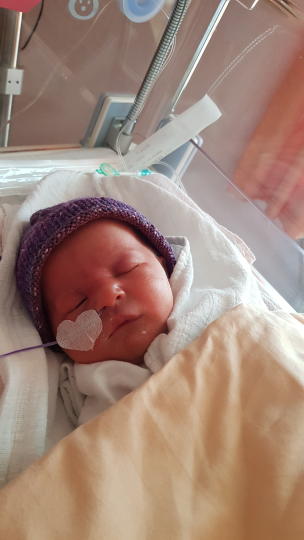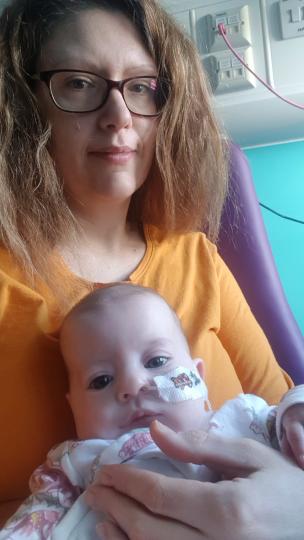Baby girl is 50th patient to get pioneering transplant at GOSH
A four-month-old girl has become the 50th patient to receive a life-saving transplant at Great Ormond Street Hospital (GOSH) using a pioneering treatment for a rare disorder.
The hospital is one of only two centres in the world to perform thymus transplants – which sees tissue that would otherwise be discarded after heart operations donated to children born without a working thymus gland.
Babies born with the condition, known as athymia, can be at risk of dying within the first two years of life without a transplant.

While the first coronavirus lockdown in March last year saw transplants initially suspended, GOSH managed to treat 10 patients in 2020 – double the average number performed in each of the previous three years – after the programme was granted special permission from NHS England to continue.
GOSH carried out its first thymus transplant in 2009, and four-month-old Florentina, from Gatringen in Germany, became its 50th patient to undergo the life-saving procedure in March this year.
The thymus is situated in the chest, and tissue is normally removed to gain access to the heart during surgery for congenital heart disease in children.
The thymus gland produces T-cells – the white blood cells with a vital role in helping the body to fight infections.
With thymus transplants, the removed tissue – which would otherwise be discarded – is donated with parental consent and grown in a laboratory before being implanted into the thigh muscles of the patient with athymia.
The donor is not usually affected because their immune system has already developed and not all of the gland is removed, GOSH said.

Professor Graham Davies, who leads the thymus transplantation programme at the hospital, said: “We’re thrilled to have reached this important milestone and have given so many children the chance to live a relatively normal life.
“We’re proud of the work we have done to build up our hospital as a centre of excellence in thymus transplantation.”
Florentina’s mother, Stefanie, who did not wish to give their surname, said until their arrival at GOSH her daughter had not seen her without a mask.
She said: “This is the first time she’s seeing anyone, including myself without one. I love how I can now properly converse with her.”
Stefanie, who is now back in Germany with her daughter at a hospital there, said the transplant had gone “very well” and she hoped to get back to their house by summer.
She added: “I think it will take a while to see the positive impact of the transplant – we were told that it will take around eight to nine months for the T-cells to develop. In the meantime, we have to be careful with her and make sure she doesn’t get any infections.
“We are really looking forward to seeing the family again. My hope is that she can go to a normal primary school and do the same things as every other child can do, free of illness.”

GOSH said patients travel from across the world to get treatment, with one case last year coming from New Zealand.
The only other centre to perform thymus transplants is Duke University in the US.
Oscar, who is almost two years old and from Ammanford in Wales, was discharged from hospital in November, arriving home for the first time in his life after having had a thymus transplant at GOSH in September 2019 and dealing with various health issues since.
His mother Bryony, who did not give her surname, said: “I can’t fault the thymus transplant team – they were amazing. I never felt that I didn’t know what was going on. They were there for me as well as Oscar.

“Oscar is very complex – he’s deaf and blind in one eye. He’s not crawling or walking yet either, but we hope he will pick that up. I’m also not sure whether speech will be possible in the future, but I always say ‘never say never’ with Oscar.
“He has surprised me so much, especially having come through two cardiac arrests. Even though I know he’ll have troubles in the future, I’m hopeful, and will push him as much as he needs me to. Whatever Oscar wants to do, he will do. He’s very strong willed and will surpass all my expectations of him.”
Dr Kiki Syrad, director of grants and impact at GOSH Charity said: “It is fantastic that 50 children have now benefited from this pioneering technique, with many more to be helped in the future.
“At GOSH Charity we are so proud that our generous donors, including Letter One, have supported GOSH’s world-leading thymus transplantation team to reach this milestone.”

 Yahoo News
Yahoo News 